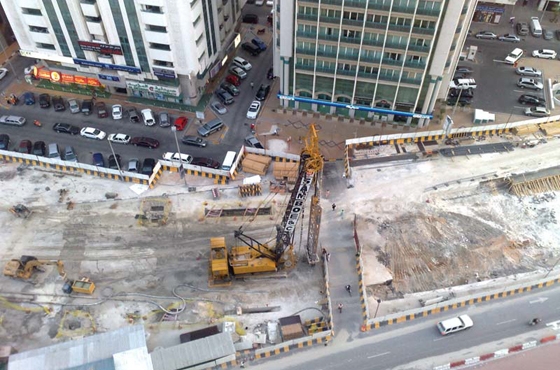Despite the economic and financial challenges the world over, the GCC contracting industry is projected to post a strong growth in the coming years due to the vast number of projects being planned and executed.
This is highlighted in Kuwait Financial Centre 's (Markaz) recently published executive summary of a report on the GCC contracting industry. In this research note, Markaz analyzes the potential opportunities in contracting space across industry verticals in terms of project value and status. The report highlights industry growth drivers and business challenges and deals with profiles of contracting players and their financial data.
Relatively less affected by the global financial crisis and the political turmoil in the wider MENA region, the contracting industry in the GCC, which is witnessing strong growth, is projected to increase further in the years to come. Currently, projects worth more than $900 billion are at various stages of development throughout the GCC of which real estate projects account for a significant value at $516 billion.
Urbanization of a young, growing population, influx of expatriate labor, and relaxation of rules allowing foreign ownership of real estate have led to increased demands for affordable housing. The focus has thus shifted from catering to higher income groups, to middle and lower income groups. Public-private partnership projects are another avenue that is yet to be fully explored.
The GCC countries are investing significantly in infrastructure development across many verticals, to meet the rising demands of a young and vibrant population, improve accessibility within the region, and to diversify the economy away from the oil and gas sector. This expansion is supported by rising government surpluses, enhanced spending measures, and higher budgetary allocations to infrastructure development. The opportunities for both local and international contracting players in the industry are plentiful, resulting in increased competition, and a challenging business environment, according to the report.
While the overall outlook for the industry is optimistic, it faces challenges within and outside the GCC region.
Lower growth forecasts for major economies and slower recovery of European countries from the debt crisis could affect international oil prices and therefore the spending pattern of the GCC countries. Increasing competition, rising costs, availability of skilled and unskilled labor, supply chain bottlenecks — with GCC nations dependent on imported machinery, raw materials and labor — could lead to lower net profit margins in the industry. Diligence measures with respect to lending for real estate and other construction activities have been strengthened after the Dubai crisis. Banks have enforced stricter collateral requirements, equitable distribution of project risks, and stringent covenants on project cash flows to safeguard their equity.
Attracting foreign investments is also a challenge due to high degree of information asymmetry, poor enforcement of legal contracts and lack of protection for investor interests.
ifpinfo
4 August






















































